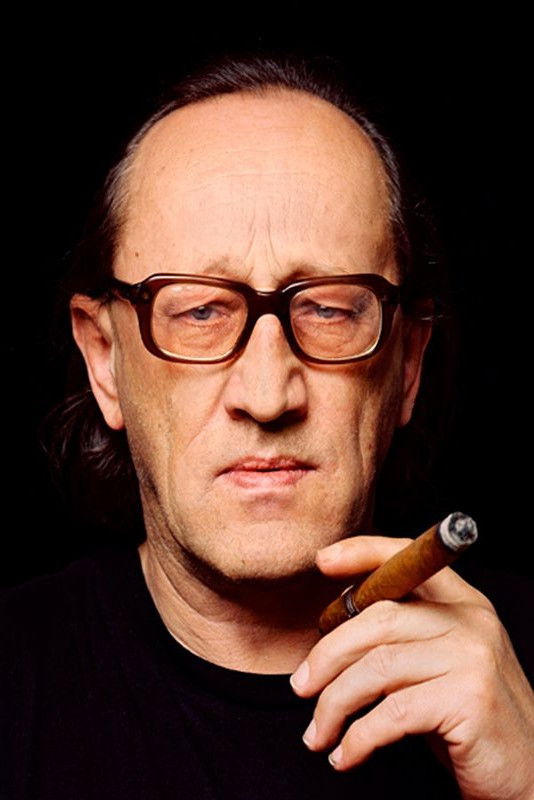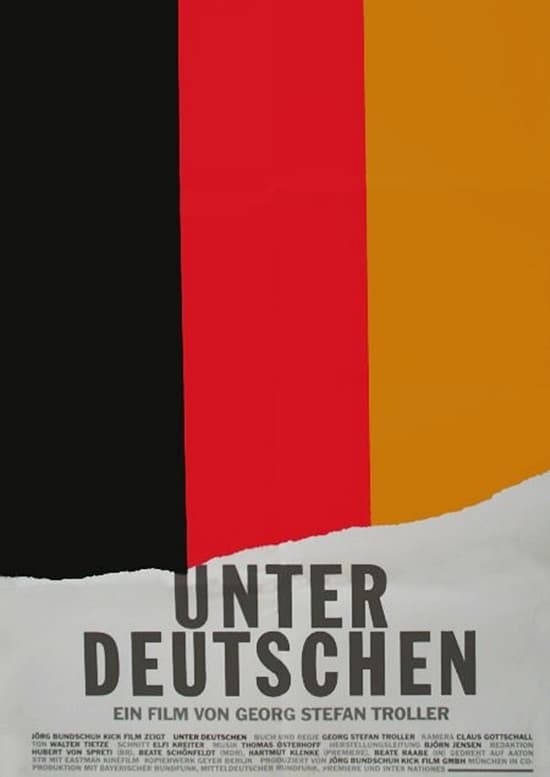
This film not only illuminates Heiner Müller's life and works, it is more about questioning the "Sphinx" of the East and its saying about the loss of utopias and examining whether Heiner Müller's texts, as he himself said, were messages in a bottle for the future or not.
The point of departure for this discussion is the question of whether the collapse of the Soviet Union is dramatic material. Müller answers with this Brechtian sentence: "Oil resists the five acts." He describes how difficult it is to make a dramatic adaptation of structures or massive processes that are not bound to biographies.
The discussion begins with the parable of a frog in boiling water. It comes from the book "Post-heroic Management: A Manual" by Dirk Baecker, which is what Heiner Müller is currently reading at the time of the discussion.
Müller describes Ovid's Metamorphoses, Golding's translation of which (1603) was one of Shakespeare's sources, as an encyclopedia of the Greek myths, its dramatic central theme being the transformation of human beings into animals, plants, stones---either as a punishment or out of a need to escape.
A few months before his death, Müller responded to the keywords "breathing" and "smoking" with an anecdote that interprets breathing as an indiscretion towards the dead. In his view, smoking is a means of practicing stoicism: "Whoever smokes looks cold-blooded" (Brecht) and "Whoever smokes becomes cold-blooded" (Müller).
The horizon of this conversation is marked by Müller's personal memories, reflections about ongoing themes in his work, thoughts about his current production and the nearness to death that has been brought by his illness.
The conversation begins on the topic of Müller’s plans for new plays. Müller tells us that he has promised to write a libretto for Boulez, and that he wishes to use the myth of Heracles as material for a stage play.

Documentary filmmaker Troller criss-crosses post-reunified “Transgermania” for a year, probing German identity through festivals (Carnival, Oktoberfest), films, small towns and big cities. He attends a Black–Bavarian wedding at an “animal fair,” chats with chimney sweeps, students, artists and elites (from Grass to Müller), and asks uneasy questions about unity, memory and the future - all from his outsider’s lens.
One of Müllers's vocal cords was paralyzed as a result of a life-saving radical operation (1995). At the beginning of the discussion Müller observes that figures from Greek mythology live on today as trademarks for products (Ajax as a cleaning agent, Polydor as a record).
In this journal, Alexander Kluge and Heiner Müller talk about the dark side and the inevitability of democracy. Heiner Müller believes that democracy has its roots in the tragedy of the Atreidae.
Heiner Müller was a German dramatist, poet, writer, essayist and theatre director. His "enigmatic, fragmentary pieces" are a significant contribution to postmodern drama and postdramatic theatre.
By browsing this website, you accept our cookies policy.